Sport and Gambling Adverts – A Double-Edged Sword
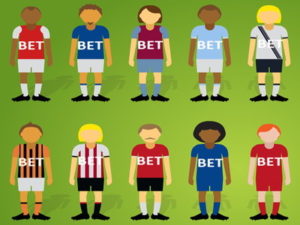 For many years now, sports and gambling have been tightly interlined. Gambling companies today sponsor many big-name teams (and smaller league teams, too), and in return, the teams feature the gambling companies’ logos on their kits and in their grounds. It’s always been something that has been seen as mutually beneficial for both sides. However, with the increase in gambling addiction and exposure to under 18’s, calls have been brought forward for such partnerships to be completely banned.
For many years now, sports and gambling have been tightly interlined. Gambling companies today sponsor many big-name teams (and smaller league teams, too), and in return, the teams feature the gambling companies’ logos on their kits and in their grounds. It’s always been something that has been seen as mutually beneficial for both sides. However, with the increase in gambling addiction and exposure to under 18’s, calls have been brought forward for such partnerships to be completely banned.
If that were to happen though, would sports teams and their respective leagues really be able to survive given the amount of money gambling contributes to sport? Alcohol and tobacco advertising are now both not allowed to sponsor sports in the way they were in the past and it was, in fact, gambling that actually filled most of the void left by those industries. Even though big fast-food chains are able to supply such sponsorship, it is heavily frowned upon due to being bad for health.
How exactly would sports team manage to get by without the heavy funding from gambling companies? Naturally, this wouldn’t really be of any issue to teams in the Premier League of football and other elite leagues. They are flush with cash already. But, what about the lower leagues and sports that don’t have such a vast following?
These questions are important both in the context of ensuring gambling is delivered responsibly and in making sure sports are secure if sponsorship is curbed. Rules are being introduced with regard to these in a bid to protect vulnerable people and minors from gambling, but how detrimental will these and further changes be to the overall sports industry?
Half of Premier League Clubs Have Gambling Sponsors
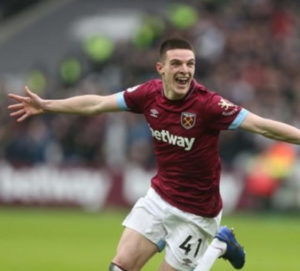
It is no secret that many sports clubs in the football Premier League of the UK have gambling companies sponsoring them. In fact, a report released in 2019 displayed information that over half of the clubs within that league had inked deals with gambling brands for the year’s proceeding season. Those clubs stood to collectively earn £350 million from their sponsorships, with 17 of the 24 clubs involved having betting brands displayed on their kits.
That figure ignited concerns over the normalisation of betting among young fans of the sport. Premier League football is the biggest attraction in the UK, with popular clubs like Arsenal, Manchester United, Aston Villa, Liverpool, Everton and more playing in such. At the same time, the dominance of betting spread out over the Championship as well, meaning that combined, a total of 27 of England’s top 44 clubs have agreed to be sponsored by betting brands. Consequently people bet a lot of money on football as a result.
Even though concerns were displayed by Members of Parliament at the time, the betting industry still proceeded to tighten its grip on football for the 2019-20 season. West Ham was sponsored by the Betway brand for that season, Everton had SportPesa emblazoned on its shirts, while Wolverhampton Wanderers were proud to display ManBetX logos on their kits. In fact, that betting company also sponsors Crystal Palace, meaning that it has its foot firmly in the Premier League door.
Some of the big-name teams aren’t sponsored by such companies, though. Manchester United holds a sponsorship deal with Chevrolet, while Manchester City is sponsored by Etihad. At the same time, Arsenal inked a deal with Fly Emirates and Liverpool holds a partnership with Standard Chartered.
That being said, it remains as quite a prevalent factor in the Premier League, and in football in the UK in general. As noted, The Championship has its own selection of gambling sponsorships in place. Derby, Middlesbrough, Preston North End and Leeds are all sponsored by the 32Red brand, Birmingham has a deal with DoyleSports, Blackburn remains active in its deal with 10Bet and Bristol City has the Dunder brand emblazoned on its strip. Other gambling brands in partnerships with Championship teams include DafaqBet (Fulham), SportPesa (Hull), Bet365 (Stoke City) and YoBet (Swansea City).
It’s not only in the United Kingdom that gambling companies have sponsored football teams, either. The German Bundesliga recently saw five of its teams ink deals with the Betway brand, and this company also supports horse racing, darts, snooker and tennis events around the world at the same time. And Betfair has a deal with FC Barcelona that sees its logo displayed at the Camp Nou stadium, as well as special access to players.
The FA has lead the way introducing a gambling sponsorship ban a while back, however, it seems unlikely the more money driven Premier League and other leagues would volunteer to follow if not forced.
The Threat Of Gambling Brands To The Sports Industry
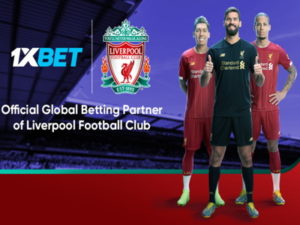 In July of 2020, a House of Lords Select Committee report recommended that Premier League clubs should not be allowed to receive sponsorship from betting firms. This would also mean that they wouldn’t be able to display and, in some eyes, glorify betting on their kits.
In July of 2020, a House of Lords Select Committee report recommended that Premier League clubs should not be allowed to receive sponsorship from betting firms. This would also mean that they wouldn’t be able to display and, in some eyes, glorify betting on their kits.
This cross-party committee was set up as a way of looking at the impact that the UK’s gambling industry has on fans of the sport. It said that by 2023, such sponsorship deals on teams within the Championship could also be phased out for the same reasons, and that deals between gambling brands and other sports should be ended in three years, too.
The 192-page report warned that more needs to be done in order to prevent gambling-related harm constantly increasing in the UK. Furthermore, the UK Gambling Act 2005 is set to be reviewed by ministers, and the hope is that these sponsorship changes will be incorporated into such.
This all came about after campaigners said that betting has been normalised within the football sector, and this can actually lead to addiction in the long run. While the Premier League was the prime target of the report, it did state that clubs below this level shouldn’t be left out. However, there should be that flexibility brought into effect on when the changes are introduced for such teams. That flexibility should also be in place for other sports, including darts, snooker, tennis and so on.
Finally, the report suggested that the changes to advertising rules should not be applied to either horse racing or greyhound racing.
Plight of Lesser Leagues and Other Sports
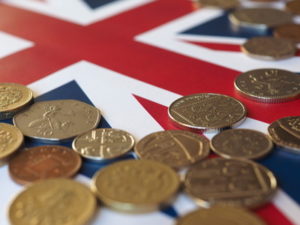 It was noted within the report from the House of Lords Select Committee that removing betting sponsorship wouldn’t be likely to affect the Premier League clubs. However, it would likely have a much more serious effect on the smaller clubs, not just in terms of football, but sports in the UK in general.
It was noted within the report from the House of Lords Select Committee that removing betting sponsorship wouldn’t be likely to affect the Premier League clubs. However, it would likely have a much more serious effect on the smaller clubs, not just in terms of football, but sports in the UK in general.
According to the English Football League (EFL), the gambling sector actually contributes around £40 million every season to the league and its clubs. That is something that the EFL has been keen to highlight as being quite the necessity, especially at the moment with the coronavirus pandemic taking such a big amount out of sports and their funds. It also went on to counter the decision to bring a ban on gambling company advertising, stating that it would be better to work with those brands in a bid to prevent gambling addiction, rather than banning it altogether.
Despite the fact that a ban on advertisements promoting gambling during sports events was brought into effect, the Lords report suggests that this is “of very limited use”. Why? Because it comes into use five minutes before a match has started and ends five minutes after a match has come to a close. Not only that, but viewers – including children – can see a plethora of betting company logos and slogans on their favourite teams’ kits while the game is in-play, as well as on the perimeter of the field.
The move to take gambling sponsorship and advertising away from the Premier League instantly was welcomed by various people, including James Grimes, a former gambler who now runs the charity The Big Step. This focuses on football’s relationship with gambling and in trying to reduce the connection of such.
“We’ve been calling on government and football to reduce gambling exposure to children,” he said, noting that this has all been done as a way of preventing young people from going through the same thing he had to endure.
Can Lesser Teams Survive without Betting Sponsorship?
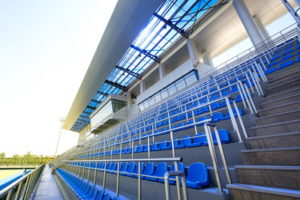 As noted earlier, it is thought that removing gambling sponsorship from the Premier League teams will have very little impact on their revenue. It’s more so the upset that it will cause to lower football teams and other sports that is providing the biggest questions. Well, that’s definitely something that is a question to be focused on. However, it seems that even some of the betting companies themselves are behind the move to stop sponsorship deals of the sort.
As noted earlier, it is thought that removing gambling sponsorship from the Premier League teams will have very little impact on their revenue. It’s more so the upset that it will cause to lower football teams and other sports that is providing the biggest questions. Well, that’s definitely something that is a question to be focused on. However, it seems that even some of the betting companies themselves are behind the move to stop sponsorship deals of the sort.
Both GVC – the owner of Ladbrokes – and Paddy Power Betfair have gone against the grain by stating that they believe there should be an end to shirt sponsorship deals. Yet could this move be a little bit too soon?
The corona virus outbreak has had such a huge effect on sports in general, with many having to stop taking place for multiple months due to lockdown rules. Many sectors have already suffered from a reduction in funds due to the introduction of these rules, so is it really the right move to introduce the removal of gambling sponsorship on sports teams. Especially for the lesser-known teams in the lower divisions?
And even when football grounds are re-opened to allow spectators in, they won’t be able to fill them to the capacity that they were at prior to the outbreak. Even then, the income wouldn’t be as vast as it was before. The removal of such gambling sponsorship could prove to be quite detrimental overall.
Would the government think about delaying such a decision? While nothing has particularly been brought into effect for the moment, it’s likely that it will be. How soon that occurs is another question entirely.
A Replacement for Gambling Sponsorship?
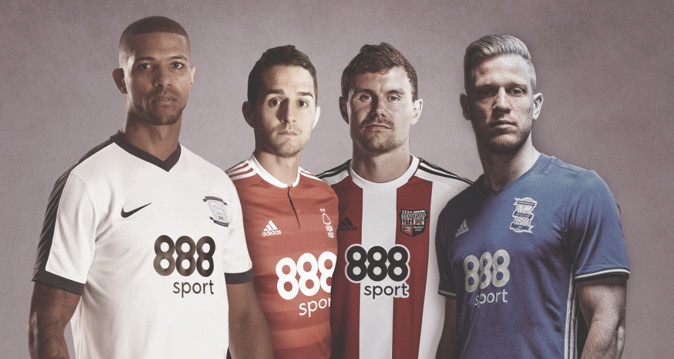
Regardless of if and/or when it happens, what exactly could replace the income that gambling companies bring to the sports world? This has been a question that has been tossed around during the whole process, and one focus has been placed on financial firms being able to provide the necessary income. American International Group (AIG) has been marked as one such company that could potentially provide such. This is the company that already has a sponsorship deal with the New Zealand Rugby (NZR) team the All Blacks. That deal is set to come to an end once the 2021 season finishes.
Could it move towards the English Premier League, Championship and so on afterwards? The insurance group has been the sponsor of the NZR’s national teams since 2012. It initially signed a five-year deal that was reported to be worth $80 million, and that was then renewed in 2016 for another five years. It was then that the All Blacks specifically obtained the sponsorship of AIG.
It wouldn’t be the first time that AIG has been associated with the Premier League, though. In 2006, Manchester United were sponsored by the insurance group as part of a $100 million (£56.5 million at the time) deal. That was a four-year deal before American reinsurance company Aon took over in another four-year deal. There is nothing that would really stop it from returning to the football scene, and potentially other sports. If there is a gap with gambling companies no longer able to provide their sponsorship to such, then it will surely provide a competitive market for other cash rich industries to involve themselves.
Yet is it really any better for these companies to be sponsoring football teams, sports clubs and so on? People frequently lose lots of money on the markets, so it can often be considered as quite a gambling activity in itself. This is why it is cash rich in the first place. Can it really be said that there is room for such companies to enter into the space that could potentially be created by the loss of gambling company sponsorship?
Only time will tell what happens with regard to the introduction of such new rules. Obviously, the Gambling Act 2005 is also set to be restructured in due course, so this could also cause an effect in one way or another.



